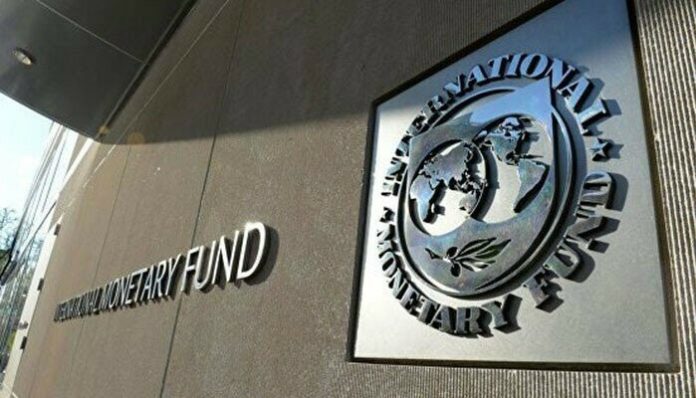——– Ignores Imran Khan’s demand
——– Shows eagerness to collaborate with fresh set-up
——– IMF Spokesperson refuses to comment on Pakistani politics
——– Hails caretakers for maintaining economic stability
DM Monitoring
NEW YORK: The International Monetary Fund (IMF) has expressed willingness to work with the new Pakistani government while ignoring Pakistan Tehreek-e-Insaf (PTI) founder Imran Khan’s demand from the lender to hold an audit of the election results before approving any new loan for Islamabad.
Addressing a press briefing, IMF’s Director Communications Julie Kozack said that on January 11, the lender brought total disbursements under the Standby Arrangement (SBA) to $1.9 billion, adding that the programme is “supporting the authority’s efforts to stabilise the economy and to, of course, with a strong focus on protecting the most vulnerable.”
The official also appreciated the interim setup, saying during the caretaker government’s tenure, the authorities have maintained economic stability. “This has been done through strict adherence to fiscal targets while also protecting the social safety net. It has been done by maintaining a tight monetary policy stance to control inflation and to continue to build up foreign exchange reserves,” she said.
The spokesperson further added that they “look forward to working with the new government on policies to ensure macroeconomic stability and prosperity for all of Pakistan’s citizens.”
When pressed to comment on the former prime minister Imran Khan’s demand for an audit of poll results, she said, “I’m not going to comment on ongoing political developments.”
The IMF’s statement came in response to the PTI founding chairman’s decision to write a letter to the global lender urging it to call for an audit of the February 8 election before it continues talks with Islamabad for a new loan programme.
“Imran Khan will issue a letter to the IMF today. The charter of IMF, EU, and other organisations stipulates that they can function or provide loans to a country only if there’s good governance,” the PTI leader’s counsel Barrister Ali Zafar told reporters at the Adiala Jail on Thursday.
Zafar said the mandate of the people was stolen in the darkness of night, insisting that democracy could not run if the mandate of the people was stolen. He said the whole world had seen rigging taking place in the general elections.
He said Imran would write a letter to the Washington-based lender, asking it to call upon the Government of Pakistan to conduct an audit of the rigged constituencies through an independent audit team.
“We clearly ask the IMF that if talks are to be held, then first there should be audit in constituencies, where rigging was done and the audit should be independent and not through the ECP. The judiciary should be involved and if the apex court heads it, it will be very fine,” he argued.
Ali Zafar said if the elections were not transparent, no one will give loans to this country.
Meanwhile, Bloomberg News reported on Thursday that Pakistani authorities are planning to seek a new loan of at least $6 billion from the IMF to help the incoming government repay billions in debt due this year.
The country will seek to negotiate an Extended Fund Facility with the IMF, the report said, citing a senior government official.
The talks with the global lender were expected to start in March or April, it added.
Pakistan averted default last summer thanks to a short-term International Monetary Fund bailout, but the programme expires next month and a new government will have to negotiate a long-term arrangement to keep the $350 billion economy stable.
Ahead of the bailout, the South Asian nation had to undertake a slew of measures demanded by the IMF, including revising its budget, a hike in its benchmark interest rate, and increases in electricity and natural gas prices.
The IMF staff continues a dialogue with authorities on needed longer-term reform efforts, a spokesperson for the fund said, adding that the fund is available, if requested, to support the post-election government through a new arrangement to address Pakistan’s ongoing challenges.




